- Home
- Taylor Caldwell
The Wide House Page 2
The Wide House Read online
Page 2
Yet her ways were so winning when she desired, so meek and sweet, her expression so innocent, that she could “come over” anyone whom she wished to placate. She had coaxing little manners, also, and she could even, upon occasion, subdue the loud and raucous hoarseness of her voice so that it was almost soft. She might pull fat Bridget’s mobcap strings from under her chin, and tie them in hopeless knots as the good-natured woman slept in her chair before the fire, she might put pins into her mother’s favorite red velvet cushion so that Bridget would arise with an anguished cry, clutching her great buttocks, she might do any number of such knaveries, yet she was always forgiven when she could induce a large tear to fall over her cheek and make her thin wide mouth tremble.
She was hardly ten years old when her doting mother began to search anxiously among the neighboring “gentlemen farmers” for a proper husband for her child. Her sisters had all been married before they were seventeen to comfortable and sturdy young men of the neighborhood, and well-settled on excellent farms. To Bridget’s increasing distress, Janie took no apparent interest, during her adolescence, in eligible youths of the countryside. It was not until she was nineteen that her avaricious eye fell on young Robin Cauder and her desire fastened on him.
As Janie was so abysmally greedy, her lust for Robin Cauder was inexplicable. For Robin had only the garments on his back, and a thin collection of shillings and pence in his tight, frayed pantaloons. He had been born in the dark and violent highlands of Scotland, one of numerous sons of a starveling shepherd. Robin, at a very early age, was set to work as a shepherd also, and in the deep snows of the black mornings he would take the flock out to forage for the meager moss under the snow. Then it was that he sang to the lonely star of the morning, and in such a voice, so golden, so strong and sure, that it seemed the gnarled rocks listened, and the twisted trees. Even the sheep lifted their heads, as if enchanted. He sang the Highland lays, full of wild melancholy, full of death and lovesick girls and fated young men, full of war and glory and hatred for England. He would wrap his shawls about him, oblivious of the terrible winds that swirled his kilts about his reddened young legs, and he would lift his face to the paling morning sky, and sing like a veritable angel.
He also had an angelic beauty. Tall, sturdy, full of grace, he had a dark clear skin, fine black eyes, the Hebraic nose of the true highlander, and a mop of curling black hair. The girls soon loved him. But Robin loved nothing but his savage mountains and the sound of his own singing. He was only sixteen when he left the highlands and made his way, a minstrel, through the towns and hamlets of Scotland. His voice, though untutored, charmed and intoxicated his poor listeners to such an extent that they would produce numerous pennies, and even shillings, for him. They loved to hear his laughter, rich and rollicking, full of joy in life.
He wandered through Scotland, this singing young vagabond, for a whole year, living gaily with strangers who would give him shelter, even though it were only the hearth before the meager pit fires or in a barn with the cattle. He was seventeen when he reached Barhead, Scotland, and cast his eye curiously across the English border. Englishmen, he knew, were more lavish with shillings and pence, than his own cautious countrymen. He wandered across and sang in English taverns until even the prosaic English tenant farmers would raise their heads from their warm beer and listen, open-mouthed. It was in one of these taverns that the reckless son of the local minister heard him sing, and induced him to visit his father. The minister, overcome by such a glorious voice, persuaded Robin to learn the dull hymns of respectability, and to sing in his chapel. Robin found it all very boring, for he had a restless and wandering foot. He decided to stay until he had collected ten pounds. In the meantime, he slept in the garret of the minister’s house, where the blankets were clean and adequate.
Janie heard him sing in the chapel. She watched him from the family pew. From the first day she desired him, with voracity. She would marry this seventeen-year-old youth, and no other, she vowed. She broke this appalling news calmly to her parents, who were thrown into desperate perplexity. Duncan stormed and raged; Bridget exuded buckets of tears, the brothers and sisters sat about in their woolen breeches and frocks, and lifted their hands in wailing horror. Janie was firm. She would remain a spinster, reviled by the neighbors, unless she had her Robin.
Robin, in the meantime, remained happily ignorant of the fury that engulfed Stronghold, the Driscoll farmlands. He had noticed Janie in her pew, her slight little body arrayed in velvets, furs and silks, bejewelled like a Jezebel, and with a suspicious coloring on her sallow cheeks, and though he was aware that she looked at him steadily with her long green eyes, and smirked at him coyly as he sang, he was not taken by her. He had never loved money. He desired only to sing his way through life, careless, restless, and full of merriment. Janie’s position did not impress him in the least.
It was not until she contrived to waylay him on the road home to the minister’s house, that he began to look at her with interest. He was not a lad to forego any promised pleasure. But Janie was astute. It was marriage or nothing. She dressed herself in her best, and was so gay, so amusing, so full of hoarse laughter herself, that the lad found himself waiting for her on the winding road. Janie soon saw that sables and silks and the best beaver bonnets had no power over him, and subtle as always, she found the way to his quicksilver heart. She would sigh and murmur that she was but a little fluttering bird in a golden nest, that she desired nothing but to see the world, that her spirit was smothering to death at Stronghold. When Robin spoke of far places, of his own highlands, Janie would cleverly contrive to make her eyes sparkle with green light, or tears, and she would vow that she must see those highlands.
Still, it might have come to nothing had not Duncan, with fury, visited the awed and trembling minister’s house, shouting that he would see that jackanapes immediately, or, with his own hands, he would tear the very beams from the ceilings. Robin, hearing the uproar, came negligently and gracefully from his garret. He was not intimidated by Duncan. When he finally, through the imprecations and threats, caught the gist of the old man’s words, the lad threw back his head and laughed with huge enjoyment.
Nevertheless he was also angered, for he was both stubborn and proud. So, he was not good enough for Janie, was he? He must leave at once, must he, with a pocket lined with pounds? Robin only laughed. When next he met Janie on the road, he asked her to wed him.
They did not marry for two months, and Janie was imprisoned in her home, Duncan finally overcoming the tears and pleas of Bridget. Janie went into a “decline.” She would neither eat nor sleep, she wept, until she had her Robin. Her mother’s tearful pleading had no effect. Janie locked herself in her room. Outside, the brown autumn winds tossed drying leaves against the closed shutters. She would sob loudly, and then listen. If, after some time, she did not hear the distressed shuffling of her mother’s feet outside the door, or her deep sighing, Janie would go off into a tantrum, screaming and shrieking like a banshee, hurling herself violently upon the floor, kicking and drumming against the polished boards.
Duncan, who was of a considerable toughness, finally surrendered.
“Hae y’braw vagabond, then, and be damned to y’both!” he roared one morning, outside Janie’s door. And then he thumped off crashingly out of the house, mounted his horse, and rode to the nearest tavern. When he returned, in a golden numb daze, Janie was seated before the fire sipping not milk and brandy, while Bridget bumbled and flurried about her reconciled child.
Robin was waited on, a few days later, by two of Janie’s elder brothers. They, they announced irately, had come to give their father’s consent to Robin’s marriage to Janie.
Now Robin had not seen Janie for nearly two weeks, and, in truth, he had almost forgotten her. He stared in amazement at her brothers, and then his clear dark skin flushed scarlet. Inwardly, he cursed the wild and stubborn folly that had brought him to this impasse. He said nothing to the young farmers, but when they had gone, he
decided on flight. Wed a lass and be tied to the earth? Not Robin!
He tried to flee the next morning. But on the road back to Scotland he encountered the eldest and strongest of Janie’s brothers, on horseback. Robin stared up at that large brown face with the relentless eyes, and burst out laughing. He shifted his knapsack, turned about, and went back to the minister’s house, whistling.
He was wedded to Janie six weeks later. Gordon Coleman did not come. But his wife and Stuart were there. Stuart had followed the course of Janie’s wooing with a schoolboy’s great curiosity, mingled with amused affection for his older cousin. In truth, he was delighted at her artful success, and her cunning, and thought her a bold and venturesome baggage whose life would be interesting to observe and follow. No more would he and Janie scamper through the woods, searching for butterflies, and feeling the soft moss under their feet as the slanting red light of the dying sun fell through the columns of the trees. No more would he watch with Janie the dim white light of spring in the evening sky, nor would they run down to the river again and skate upon the black ice glittering in the noonday winter sun. He remembered Janie scrambling up the tilted trunk of some old tree, then, reaching a low branch, grasping it and swinging herself out into space, hanging by her hands. How her petticoats would flutter in the cool forest wind, and how thin and active her legs looked, in their long frilled pantaloons! For indeed, Janie was as lively as an insect, and as noisy as a cricket, and as daring as a squirrel. No one could be dull in her presence, slyly malign though it was. Then too, for Stuart, at least, she had a boisterous affection, for all her tormenting ways, her cruel little teasings and malice.
Remembering how she had endlessly entertained him, how she had violently clouted him one moment then fawned on him the next, remembering the coarse and rollicking laughter, obscene in its tones, echoing in the dark woods, remembering her avarice and her impulsive generosities of the instant, he felt his sadness growing.
It was a raw brown autumn day when Robin and Janie were wedded, and the narrow-paned windows gushed with leaden water. The big gray house, gloomy as always with the exception of the kitchen and its copper pots glowing in the fire, had a dank chill smell. There was a wide window-seat beneath the back windows, and Stuart sat there, yawning and waiting with the others, for Janie and her groom to appear. These windows overlooked the kitchen and the herb gardens, bounded by a gray stone wall. In the center of these lush and untidy gardens grew a tree, sinewy and twisted. Pools stood about in the midst of tangled and drooping vegetation, trembling in the cold wind, rippling and wrinkling like miniature lakes whipped by a storm. Dirty brownish clouds scudded across the darkening sky. For a little while the rain had stopped. Drenched doves had ventured forth from the dove-cote, and now sat in a row on the low gray wall, their feathers ruffling miserably. They had a woebegone look, and made mourning sounds, infinitely melancholy. A dog was barking wretchedly. From some distance came the somber lowing of cattle making their way back to the barnyard. And now, as Stuart watched, a dim skirling mist began to rise from the black and ruined garden, twisting its way through dead stalks and grass, then lifting a little like an up-flung drifting scarf, or in puffs like mushrooms.
It was not a day of good omen. Fires had been built in the parlor, which was seldom used except on grand occasions such as Christmas (though Duncan, the Scot, was against any “Papish” observance of the holiday), or a wedding or a funeral. In consequence, the very panelled walls had a damp patina over them, and in places farthest from the fire this dampness gathered in dots of water on the polished wood. The mahogany furniture, slippery with horsehair or hard tapestry or velvet, glimmered blackly in the firelight, and the wide Turkey carpeting stretched drearily from wall to wall. The many guests felt this despondent atmosphere, and huddled about the immense black-marble fireplace, their whiskey-glasses in their hands. The males had fortified themselves prodigiously, and their hoarse country voices were becoming exceedingly loud. The ladies, in their large velvet skirts and pelisses and fur-trimmed mantles, had withdrawn primly from their menfolk, and were chattering in the subdued voices appropriate to weddings or funerals. The lamps, thriftily not yet lighted, waited for the touch of a taper. Gloom thickened in every corner.
Near the north wall sat the minister’s eldest daughter, a thin consumptive young female, dressed in dull brown, her bonnet hiding her lean pale face. Near at her hand stood a small organ, and by that organ miserably lounged the minister’s only son, a very fat little boy about ten years old, who had been delegated to supply the air for the instrument which, was to resound forth the wedding march. No one noticed these poor abandoned young creatures, though the boy had an attack of loud sniffles, and kept wiping his nose surreptitiously on his sleeve, and his sister made dismal clucking noises in reproach, tendering her handkerchief.
One of the brothers, annoyed at the thickening dimness, dared to light one lamp in a far corner, but this wan illumination only intensified the dusk. The fire could not warm the room. When the sad old minister entered, his caped coat damp and stained, his hat in his hand, all in the room glowered at him as if he was not the victim of their own cupidity but a venal serf rightly stricken by heaven with the direst poverty.
No one had as yet seen the bridegroom, that wild black lad of seventeen, and as time passed, and there were preliminary sounds upstairs, the company became restive, and some of the gentlemen went to the windows to stare out into the darkening evening. “Making a run for it, eh?” said one of the younger men out of the corner of his mouth to a companion. “Don’t know if I blame him.” The minister, venturing a word in a stammering tone, announced that Robin had arrived with him and would be in immediately.
At that moment Robin entered, attired in a fine pearl gray coat and lighter gray pantaloons, finery at which the company stared with frank amazement. On his arm he carried a tall gray beaver hat, and about his strong young throat the white ruffles were stiff and glistening. He brought with him such splendor, such freshness and high youth, that he appeared to light the room. Among those country horse-breeders and farmers, he moved with lightness and vivid grace, and though his face was soberer than usual, and very thoughtful, nothing could repress his natural air of brilliant vitality. The ladies turned stiffly on their chairs, and the dourest face of the most malign old woman softened at the sight of him. The men glowered, muttered greetings, and stared. But the minister stood by the youth he had come to love and smiled at him gently.
Everyone started when the minister’s daughter heavily attacked the organ. And now there were footsteps on the polished wooden stairs. All rose, the ladies rustling, their bonnet strings falling on their firm bosoms. Now Duncan entered with his daughter on his arm, his expression ponderous and gloomy, and in their wake came fat Bridget, weeping copiously, and attended by her daughters.
Nothing could make Janie pretty, though she had rubbed her cheeks fiercely with a piece of dampened red flannel until they glowed suspiciously, and though she had rubbed her wide lips with the same material until they were sore. She appeared unusually childlike on her huge father’s arm, drooping meekly and modestly as if she found the weight of the assembled regard overpowering. As Janie’s toilettes were always awaited avidly, every female eye fixed itself upon her, and mouths became enviously and meanly round. For Janie’s wedding gown, hastily rushed from London on the last stagecoach, was a French importation. Janie had always had chic, and an air of fashion. Her little but shapely body did justice to the creation, which was all white satin and point lace. From her tiny waist, the skirt was an enormous sloping bell, flowing about her feet, drifting with lace on which tiny pearls had been sewn. The basque, gleaming like moonlight seen through faint and delicate clouds, was fastened tightly with crystal buttons. The raw red curls were almost completely hidden in a mist of the finest point lace, crowned with artificial orange blossoms, and upon her little arms the white kid gloves wrinkled freshly.
And then, suddenly, all this glory was ruined. Duncan stopped s
o suddenly, and with violence, almost on the threshold of the parlor, that Janie stumbled and fell against him. He glared about the room, his face suffused with crimson.
“Where hae the damned lights, then?” he shouted. And he stamped his foot furiously, several times.
A confused murmur passed through the guests and the relatives. Bridget stopped her weeping; her daughters blushed furiously. Then into the room charged a housemaid in mobcap and apron, carrying a taper, her petticoats billowing. She rushed at the fire, a path being suddenly made for her, lighted the taper and darted from table to table. Everyone watched her. The minister’s daughter was so unnerved by Duncan’s oath and the confusion that she burst into tears, and the little boy forgot to pump, let the organ music die on one last caterwaul, and gave a loud squall of terror.
Then all at once the oddest sound broke through the funereal and startled silence. It was Robin’s laughter, a little wild, but loud and merry. He was leaning against a table, and was so shaken with his mirth that he had to cling to it, his head thrown back, his mouth open so wide that all his white and glistening teeth were visible. Now the attention of the stupefied company turned, astounded, upon the lad, and the lamplight showed distended and shining eyeballs. Stuart, near his mother, began to grin.
And then, as suddenly as Robin had laughed, he was abruptly still, and very pale. He stood up straight, and stared emptily at nothing. One of Janie’s sisters had pinched the weeping minister’s daughter, and she struck the organ keys with feverish energy. The little boy pumped. Everything was as it had been, but Janie was trembling with rage, and Duncan had the fixed dull look of a man who had been savagely kicked.
After that everything was anti-climax. Stuart guessed that Janie would never forgive her husband for that outburst of rude but uncontrollable mirth. The marriage, performed respectably enough, the repast afterwards, consisting of mighty hams and cold beef and ale and whiskey (all of which was hugely enjoyed by the gentlemen), would never eradicate from her mind the rough humiliation she had suffered. She smirked and simpered, accepted kisses and handshakes, her green eyes sparkling, but when she glanced at Robin, very white and apart now, her glance was virulent.

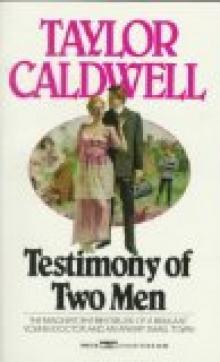 Testimony of Two Men
Testimony of Two Men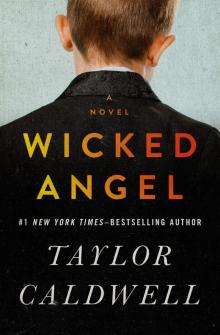 Wicked Angel
Wicked Angel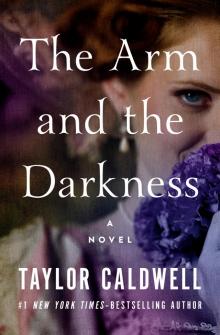 The Arm and the Darkness
The Arm and the Darkness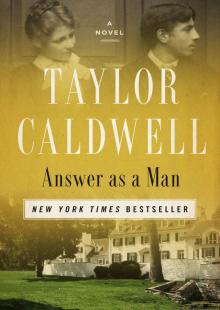 Answer as a Man
Answer as a Man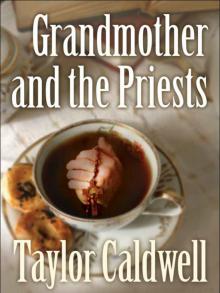 Grandmother and the Priests
Grandmother and the Priests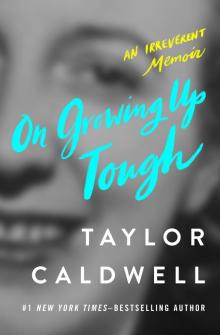 On Growing Up Tough: An Irreverent Memoir
On Growing Up Tough: An Irreverent Memoir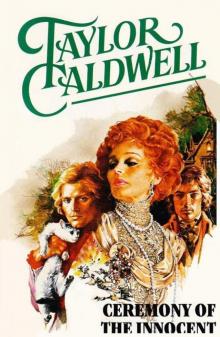 Ceremony of the Innocent
Ceremony of the Innocent The Listener
The Listener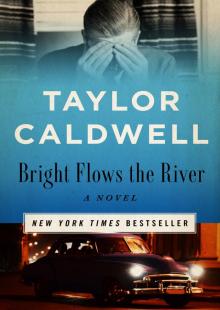 Bright Flows the River
Bright Flows the River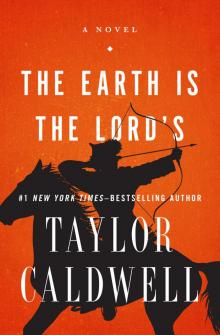 The Earth Is the Lord's
The Earth Is the Lord's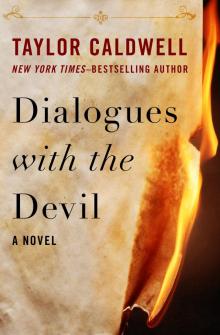 Dialogues With the Devil
Dialogues With the Devil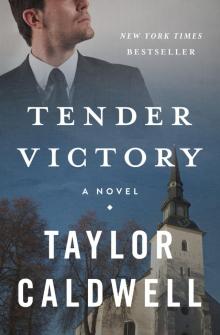 A Tender Victory
A Tender Victory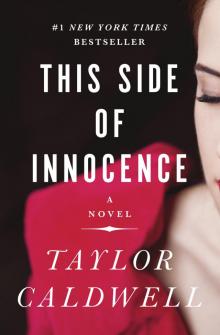 This Side of Innocence
This Side of Innocence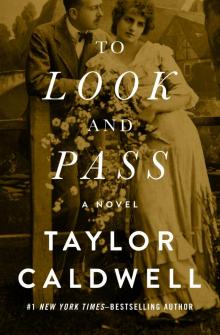 To Look and Pass
To Look and Pass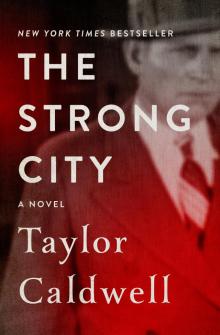 The Strong City
The Strong City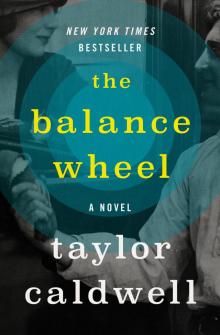 Balance Wheel
Balance Wheel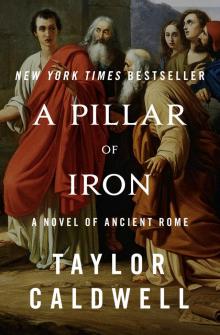 A Pillar of Iron: A Novel of Ancient Rome
A Pillar of Iron: A Novel of Ancient Rome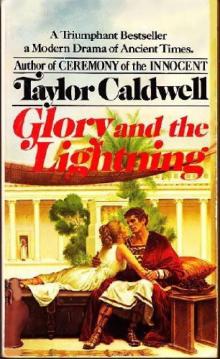 Glory and the Lightning
Glory and the Lightning Dear and Glorious Physician
Dear and Glorious Physician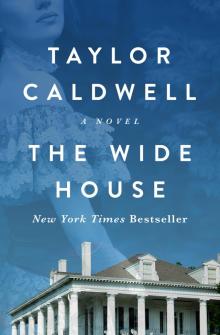 The Wide House
The Wide House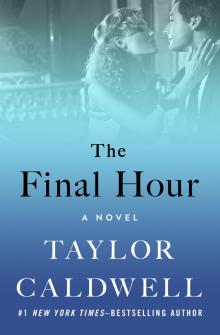 The Final Hour
The Final Hour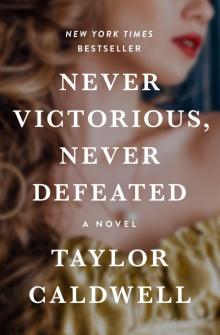 Never Victorious, Never Defeated
Never Victorious, Never Defeated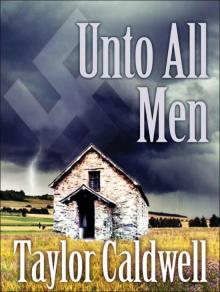 Unto All Men
Unto All Men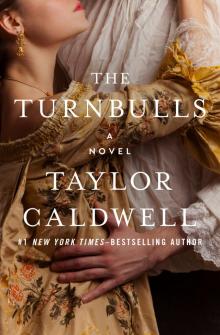 The Turnbulls
The Turnbulls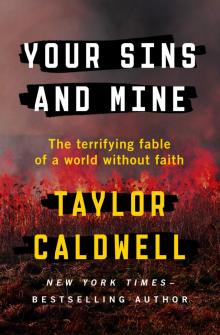 Your Sins and Mine: The Terrifying Fable of a World Without Faith
Your Sins and Mine: The Terrifying Fable of a World Without Faith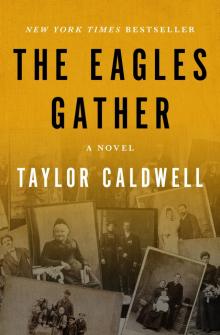 The Eagles Gather
The Eagles Gather Let Love Come Last
Let Love Come Last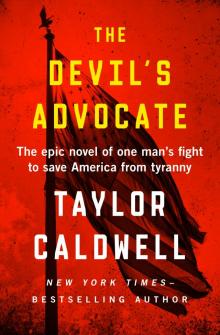 The Devil's Advocate: The Epic Novel of One Man's Fight to Save America From Tyranny
The Devil's Advocate: The Epic Novel of One Man's Fight to Save America From Tyranny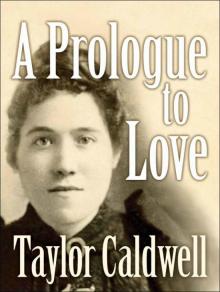 A Prologue to Love
A Prologue to Love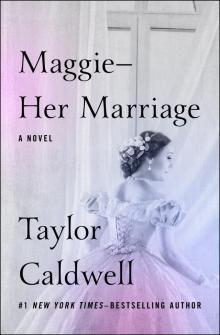 Maggie: Her Marriage
Maggie: Her Marriage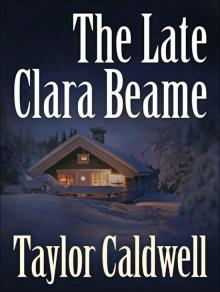 The Late Clara Beame
The Late Clara Beame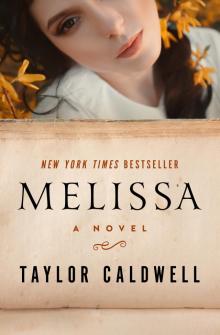 Melissa
Melissa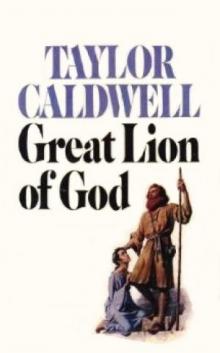 Great Lion of God
Great Lion of God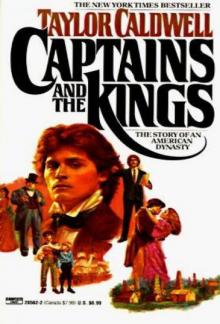 Captains and the Kings
Captains and the Kings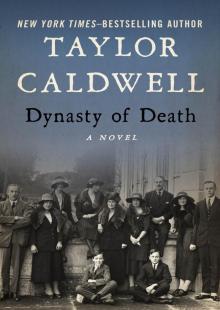 Dynasty of Death
Dynasty of Death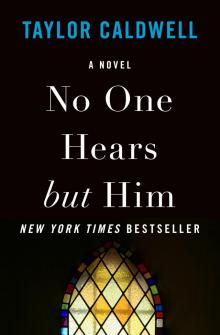 No One Hears but Him
No One Hears but Him The Sound of Thunder
The Sound of Thunder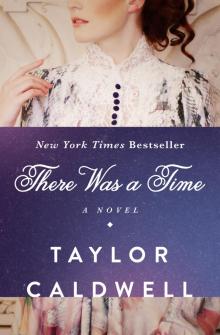 There Was a Time
There Was a Time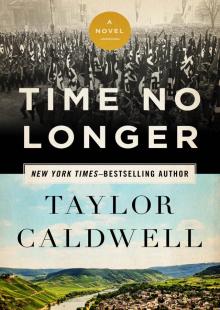 Time No Longer
Time No Longer I, Judas
I, Judas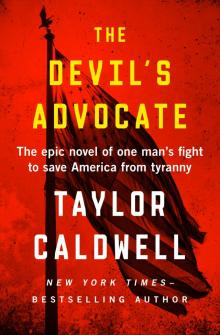 The Devil's Advocate
The Devil's Advocate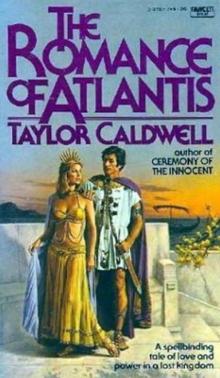 The Romance of Atlantis
The Romance of Atlantis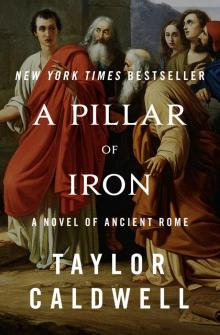 A Pillar of Iron
A Pillar of Iron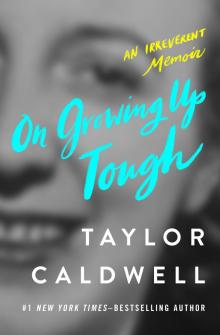 On Growing Up Tough
On Growing Up Tough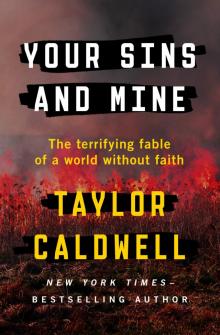 Your Sins and Mine
Your Sins and Mine